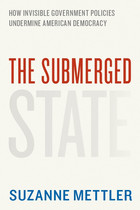Cloth: 978-0-674-30251-8 | eISBN: 978-0-674-30543-4 (ePub) | eISBN: 978-0-674-30542-7 (PDF)
A sharp analysis of the propaganda partnerships between US presidents and private organizations that fueled the Cold War and paved the way for the War on Terror.
How do US presidents motivate public support for their foreign policy agendas, which so often start out running counter to public opinion? The President’s Echo System details how successive administrations have collaborated with outside groups to popularize ideas that voters initially reject. Chad Levinson shows how these collaborations have shaped all of the most consequential US foreign policy programs of the past century, from participation in World War II and the establishment of the United Nations to the wars in Vietnam and Iraq.
The relationship between private interests and public officials is typically understood as coercive, with nongovernmental actors using wealth and media access to pressure civic leaders. Upending conventional wisdom, Levinson argues that these relationships are in fact symbiotic. Administrations of both parties have played central roles in cultivating private organizations that share their foreign policy priorities, fostering an ecosystem of influence that endures long after a president’s term.
Drawing on extensive archival research, Levinson illuminates how extra-governmental partnerships that originated during the interwar period and evolved throughout the Cold War shaped the US national security discourse during the triumphalism of the 1990s and ultimately set the stage for the Global War on Terror. Today, in an era when social media affords the White House vastly enhanced capacity to engage in collaborative propaganda with private actors, The President’s Echo System is essential reading for anyone who wants to understand the making of US foreign policy consensus.
See other books on: Americans | History & Theory | Propaganda | Security (National & International) | Wars & Conflicts
See other titles from Harvard University Press












